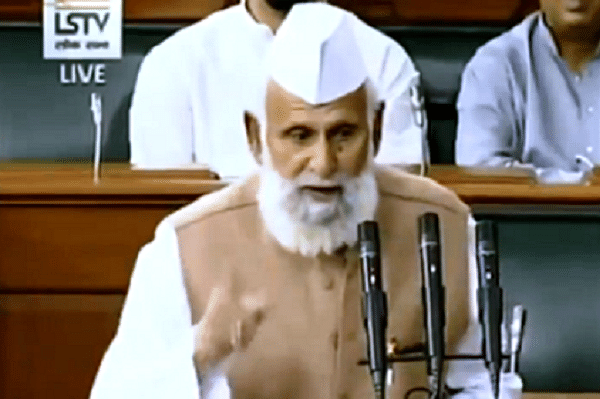News Brief
'Where Will We Get Manpower In Case Of War', Asks Samajwadi Party MP Over UP's Draft Population Control Bill

SP MP Shafiqur Rahman Barq
Uttar Pradesh chief minister Yogi Adityanath on Sunday (11 July) unveiled the new population policy 2021-30, on the occasion of World Population Day.
Samajwadi Party MP Shafiqur Rahman Barq, however, questioned that where will India get manpower in case of a war if people are not allowed to procreate, reports Indian Express.
He further stated that it is Allah who decides the number of lives on earth and no amount of checks can control that.
He also took a distasteful jibe over the issue and said, “As far as Yogi (Adityanath), PM (Narendra) Modi and (RSS chief) Mohan Bhagwat are concerned, they do not have children."
“Now, if entire India is not allowed to procreate and a situation arises that we have to face another country, from where we get men? This (draft population control bill) will prove to be a loss-making deal. A child who has to be born, will be born. You can make a law, but when a child takes birth, who can stop it?" he said.
Notably, through the proposed policy, efforts will be made to increase the accessibility of contraceptive measures issued under the Family Planning Programme and provide a proper system for safe abortion and on the other hand, through improved health facilities, efforts will be made for population stabilization by providing accessible solutions to impotence/infertility and reducing the infant and maternal mortality rate.
Speaking on the occasion, the chief minister said that bringing the bill is necessary to control and stabilize the population to promote sustainable development with more equitable distribution.
He also underlined the need or creating awareness among the people on this issue.
In the new Population Policy, a target has been set to bring the birth rate to 2.1 per thousand population by 2026 and to 1.9 by 2030.
One of the key points in the new policy is to make comprehensive arrangements for the care of the elderly, apart from better management of education, health, and nutrition of adolescents between 11 to 19 years.
Support Swarajya's 50 Ground Reports Project & Sponsor A Story
Every general election Swarajya does a 50 ground reports project.
Aimed only at serious readers and those who appreciate the nuances of political undercurrents, the project provides a sense of India's electoral landscape. As you know, these reports are produced after considerable investment of travel, time and effort on the ground.
This time too we've kicked off the project in style and have covered over 30 constituencies already. If you're someone who appreciates such work and have enjoyed our coverage please consider sponsoring a ground report for just Rs 2999 to Rs 19,999 - it goes a long way in helping us produce more quality reportage.
You can also back this project by becoming a subscriber for as little as Rs 999 - so do click on this links and choose a plan that suits you and back us.
Click below to contribute.
Latest